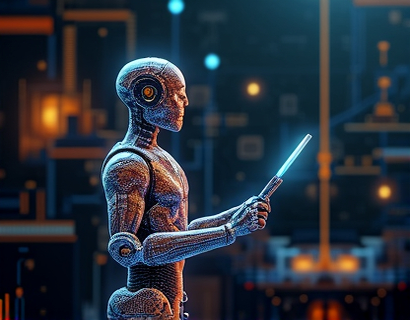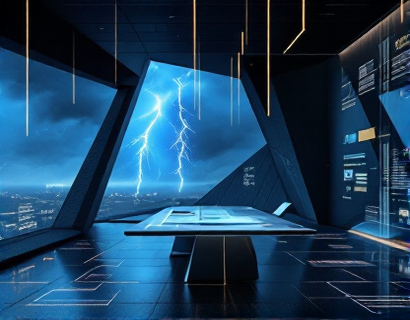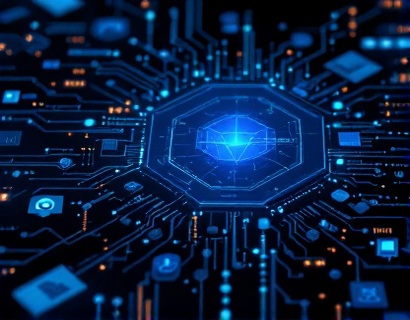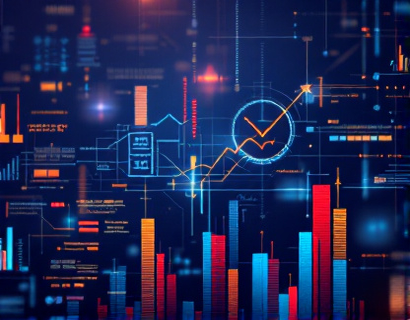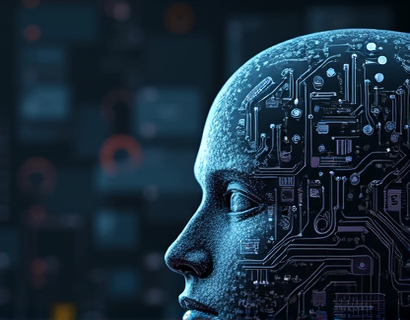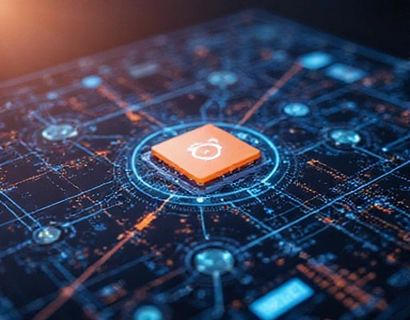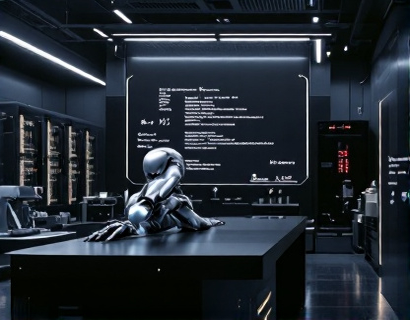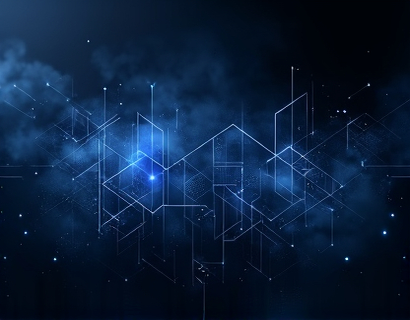Decentralized DAOs: Transforming Web3 Governance with Community Empowerment and Transparency
In the rapidly evolving landscape of Web3, decentralized autonomous organizations (DAOs) stand as a pivotal innovation, redefining the principles of governance, transparency, and community empowerment. These entities leverage blockchain technology to create self-governing systems where decisions are made collectively by members, rather than by centralized authorities. This shift not only democratizes the management of digital protocols but also enhances the overall resilience and adaptability of Web3 ecosystems.
The concept of a DAO is rooted in the broader movement towards decentralization, a core tenet of Web3. Decentralization, in this context, refers to the distribution of control and decision-making away from central entities to a network of participants. This approach contrasts sharply with traditional centralized models, where power and control are concentrated in the hands of a few. By embracing decentralization, DAOs aim to create more equitable, transparent, and efficient systems for managing Web3 protocols.
Community-Driven Governance
One of the most significant advantages of DAOs is their ability to foster community-driven governance. In a DAO, members have a direct say in the direction and operations of the organization through voting mechanisms encoded on the blockchain. This process ensures that decisions reflect the collective will of the community, rather than the interests of a select few. The transparency of blockchain technology further enhances trust, as all transactions and proposals are publicly visible and immutable.
The governance model of a DAO typically involves token-based voting, where members hold tokens that grant them voting rights proportional to their stake. This system incentivizes active participation and alignment of interests among community members. For instance, a proposal to upgrade a protocol or allocate funds for a new project must be put to a vote, allowing the community to approve or reject it. This democratic approach not only empowers individuals but also ensures that the organization remains responsive to the needs and desires of its members.
Transparency and Trust
Transparency is a cornerstone of DAOs, and it plays a crucial role in building and maintaining trust within the community. The immutable nature of blockchain ensures that all actions, from proposal submissions to voting outcomes, are recorded and accessible to anyone. This level of transparency reduces the risk of fraud and corruption, as there is no room for hidden agendas or backroom deals. Members can audit the organization's activities at any time, fostering a culture of accountability and trust.
Moreover, the transparency of DAOs extends to financial management. Smart contracts, which are self-executing contracts with the terms directly written into code, automate the handling of funds. These contracts ensure that expenses are transparently tracked and that funds are used as intended. This automation not only reduces the potential for human error but also minimizes the need for intermediaries, thereby lowering costs and increasing efficiency.
Scalability and Efficiency
Scalability is a critical factor in the success of any Web3 protocol, and DAOs are uniquely positioned to address this challenge. By decentralizing governance, DAOs can scale more effectively than traditional centralized models. The distributed nature of DAOs allows them to handle a growing number of members and transactions without a significant drop in performance. This scalability is essential for Web3 protocols that aim to serve a global user base and support complex, high-volume operations.
Furthermore, the use of smart contracts in DAOs enhances efficiency by automating routine tasks and ensuring consistent execution of rules. For example, automated funding mechanisms can be triggered based on predefined conditions, eliminating the need for manual interventions. This automation not only speeds up processes but also reduces the potential for human error, leading to more reliable and efficient operations.
Real-World Applications and Case Studies
Several projects have successfully implemented DAO models, demonstrating the practical benefits of this governance approach. One notable example is the Ethereum community, which has seen the emergence of various DAOs focused on different aspects of the ecosystem. These DAOs manage everything from decentralized finance (DeFi) protocols to governance proposals for the Ethereum network itself.
Another compelling case is the DAO Stack, a suite of tools designed to facilitate the creation and management of DAOs. The DAO Stack provides a comprehensive framework for building decentralized organizations, including governance platforms, token management systems, and community engagement tools. By leveraging the DAO Stack, new projects can quickly establish a robust governance structure, attracting and retaining a dedicated community of supporters.
Challenges and Considerations
Despite the numerous advantages, DAOs are not without their challenges. One of the primary concerns is the technical complexity involved in setting up and managing a DAO. Not all community members may have the necessary technical expertise, which can create barriers to participation. To address this, projects like DAO Stack offer user-friendly interfaces and documentation to make DAO governance more accessible.
Another challenge is the potential for governance paralysis, where the decision-making process becomes bogged down by excessive voting or conflicting opinions. To mitigate this, DAOs can implement mechanisms such as delegated voting, where members delegate their voting rights to trusted representatives. This approach can streamline decision-making while still maintaining community involvement.
The Future of Web3 Governance
As Web3 continues to evolve, DAOs are poised to play an increasingly vital role in shaping the future of decentralized technology. The principles of community empowerment, transparency, and scalability that underpin DAOs align perfectly with the goals of Web3, which seeks to create a more open, inclusive, and equitable digital landscape. By embracing DAOs, the Web3 community can build more resilient, adaptive, and user-centric systems.
Looking ahead, the integration of advanced technologies such as artificial intelligence and machine learning could further enhance the capabilities of DAOs. These technologies can assist in data analysis, predictive modeling, and even automated governance, making DAOs even more efficient and effective. Additionally, the development of cross-chain interoperability solutions will enable DAOs to operate seamlessly across different blockchain ecosystems, fostering greater collaboration and innovation.
In conclusion, decentralized DAOs represent a transformative force in Web3 governance, offering a powerful alternative to traditional centralized models. By empowering communities, ensuring transparency, and enhancing scalability, DAOs are well-equipped to revolutionize the management of digital protocols and shape a more interconnected and equitable digital future.








